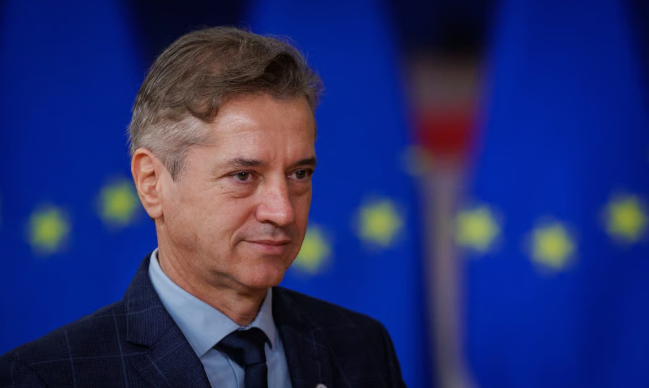Slovenian Prime Minister Robert Golob has sparked a strong political debate in the country by proposing to hold a national referendum to determine the future of Slovenia’s role in NATO.
The move comes as the government has approved an increase in military spending in line with the objectives of the transatlantic alliance, despite domestic opposition, reports politico.eu.
According to the government’s plan, military spending will gradually increase to 2 percent of Gross Domestic Product by 2030, while another 1.5 percent will be dedicated to investments in dual-use areas such as health, cybersecurity and critical infrastructure.
“If we are members of NATO, then we must take responsibility. If not, let the people have their say,” Golob declared at a press conference, presenting the referendum as an opportunity for citizens to choose between a full commitment to NATO or a review of the country’s position, the Telegraph reports.

However, the ruling coalition partners, including the Social Democratic Party (SD) and the radical left Levica, have expressed deep reservations. They warn that increased military spending could undermine the social system and lead to an “unnecessary militarization” of the country.
“Citizens did not vote for a military state, but for a social and solidary state,” declared a Levica representative in parliament.
Golob’s initiative comes at a crucial time for the NATO alliance, with its annual summit expected to highlight the importance of military burden-sharing among members. Slovenia, a small country with a strategic role in the Western Balkans, has faced repeated criticism from allies for its lack of defense investment.
The Prime Minister has also emphasized that Slovenia will engage in peace efforts in Ukraine only through NATO structures, excluding any unilateral involvement or involvement outside the framework of the alliance.
Against the backdrop of geopolitical tensions and security challenges in Europe, the fate of the referendum is expected to serve as a real test of Slovenia’s strategic orientation in the coming decade. /Telegraph/
